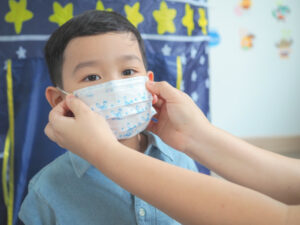This epidemic time might be a scary time for parents. An ongoing coronavirus outbreak that started in Wuhan, China in December and has since infected more than 20,000 people across the globe has raised plenty of questions: How long will the outbreak last? Can it be contained? Will scientists find a treatment?
These questions don’t yet have clear answers, making them difficult for even adults to wrap their minds around. That uncertainty, in turn, leaves many parents nervously wondering what they are supposed to tell their kids. Although the daily updates about the virus are alarming, it’s really important to remember the impact these headlines can have on kids. To save them (and yourself) from unnecessary anxiety, there are a few simple things that you can say and do.
Here are some pointers for keeping kids calm and holding a panic-free conversation about coronavirus.















